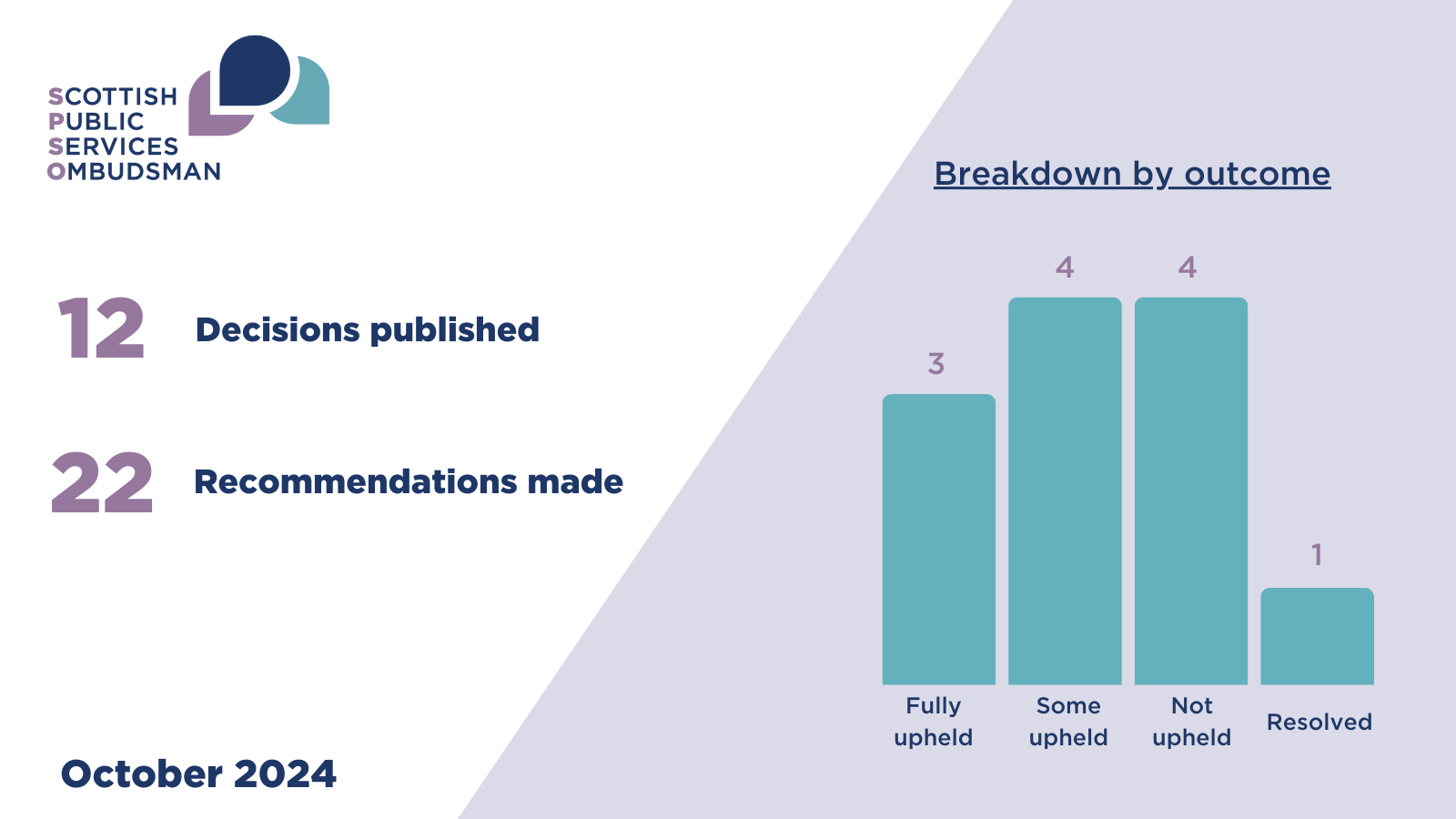
In this month’s edition of the Ombudsman’s findings, we discuss end of life care.
This month we published decision reports from 12 complaints investigated by the Ombudsman. Nine of these were about health services, one about health and social care and two about local government. The outcome of these 12 complaints were
- Fully upheld: 3
- Some upheld: 4
- Not upheld: 4
- Resolved: 1
We made 22 recommendations for learning and improvement.
End of life care
Several of our cases this month relate to end-of-life care.
In one case, our investigation found that a health board did not provide reasonable oral care to a patient with sepsis. Although the Board’s own investigation identified issues with the prescription and administration of anticipatory medication and outlined steps to prevent recurrence, it did not address the issue of oral care.
We asked the Board to apologise to the patient’s family and ensure that all relevant nursing staff receive training on mouthcare in palliative care.
In another case, we found that a health board failed to inform a patient’s family of their rapid deterioration.
We asked the Board to apologise to the family, make sure that families are fully informed about a patient's condition, and to fully complete person-centred care plans – keeping them updated as the patient’s condition changes.
Good end of life care should be tailored to the individual, ensuring they are treated with dignity and respect, and compassion. Recognising that this stage of care is often complex, and conditions can change rapidly, it is crucial to adapt care to support patient comfort and well-being.
All our published decision reports can be read in full on our website.